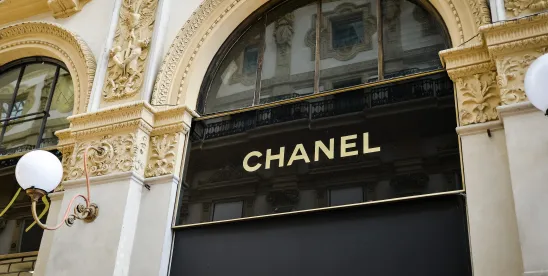"Hard times arouse an instinctive desire for authenticity," Coco Chanel once said. Chanel, the eponymous company, has taken this motto to heart in its unwavering commitment to protecting its intellectual property — an effort that recently culminated in a unanimous verdict against luxury reseller What Goes Around Comes Around (WGACA) for trademark infringement, false association and false advertising.
On February 6, a jury for the US District Court for the Southern District of New York found the reseller liable on all counts, awarding Chanel $4 million in statutory damages. Chanel also sought $6.7 million from WGACA in attorney’s fees. On February 26, the court entered its final judgment on equitable remedies, enjoining WGACA from the use of confusingly similar marks. The nearly six-year-long case alleged that WGACA sold counterfeit Chanel bags and used Chanel's trademarks without authorization. In this article, we cover the most significant federal legal developments of the case and distill the valuable takeaways.
Trademark Infringement and False Association Claims
To prevail on a claim of trademark infringement or false association, the plaintiff must show that the defendant's use of a mark creates a likelihood of consumer confusion.1 The consumer is not required to believe that the owner of the mark made and is selling the product in order for confusion to arise. Any impression by the consumer that the owner of the mark sponsored or approved the use of the mark fulfills the confusion requirement.2 To determine whether there is a likelihood of consumer confusion, courts use a set of factors to assess whether there is a likelihood of confusion between two trademarks, focusing on elements like the strength and similarity of the marks, the relationship between the products, actual consumer confusion, bad faith adoption and the sophistication of the target market. Essentially, they help determine if the public might mistakenly believe one product is associated with another.
Chanel alleged that WGACA's use of Chanel's marks and sale of Chanel-branded items created a false association between the two companies.3 WGACA argued that it used Chanel's marks merely to identify the manufacturer of the product that it sells — a lawful use of Chanel's marks that wouldn’t create any consumer confusion. Indeed, it has been held that resellers may lawfully use a trademark to describe a product, as evidenced by a prior ruling involving a similar luxury reseller, The RealReal.4 In that case, The RealReal was not found to have infringed Chanel's trademarks because it did not advertise the CHANEL mark more prominently than other marks and disclosed that the brands sold on their site are not affiliated with The RealReal in any way. Therefore, it was determined that there was no confusion as to whether Chanel endorsed or was affiliated with The RealReal, and the use of the CHANEL mark was descriptive rather than suggestive of sponsorship or partnership.
However, Chanel showed that WGACA's use of the CHANEL mark went beyond such lawful use, creating the appearance of an endorsement. WGACA featured CHANEL marks more prominently than its own, sometimes in the WGACA stylized font, and without disclaiming any affiliation with Chanel. WGACA also used CHANEL marks outside of product descriptions by using the marks in general advertisements and sales, such as "WGACA CHANEL - 100% Authenticity Guaranteed," "#WGACACHANEL" and the annual "Coco Chanel Birthday Sale." Chanel successfully argued that this use did more than simply describe products — it implied endorsement or a partnership between the two brands.
Sale of Chanel-Branded Items
While trademark law does not prohibit the resale of genuine goods because such a sale does not inherently create consumer confusion, Chanel also successfully contested WGACA's sale of non-genuine Chanel products. Goods are not considered genuine if they do not conform to the mark owner's quality control standards, even if they were manufactured by the mark holder.
Chanel’s quality control system assigns a unique serial number to each item, allowing the brand to track the product’s journey through its distribution process and eventual sale. These serial numbers are tightly secured, but in 2012, approximately 30,000 serial numbers were stolen from one of Chanel’s factories. When serial numbers are compromised or go missing, Chanel voids them in its system to prevent unauthorized use.
In the suit, Chanel claimed that multiple goods being sold by WGACA lacked conformity with Chanel's usual quality control procedures and could not be proven to be genuine. Chanel argued that WGACA was selling items with serial numbers that were either stolen from its factory, voided in its system or entirely counterfeit, with serial numbers that had never been registered in Chanel’s database.
While most trademark infringement claims are evaluated based on the likelihood of confusion, where counterfeit marks are involved, the mark is considered inherently confusing, and the court need only find that the items are counterfeit and sold by the defendant in order to find infringement.5 Accordingly, the jury found in favor of Chanel on its counterfeiting claim, concluding that WGACA had sold items bearing counterfeit CHANEL marks.
Takeaways
Chanel's victory emphasizes the necessity for careful differentiation between resale and endorsement, asserting that unauthorized use of a brand's marks — whether by means of deceptive advertisement or sale of knockoff goods — can give rise to serious legal consequences. For resellers, the key is that while secondhand sales remain legal, they must be conducted in strict compliance with trademark law. As luxury brands keep an eye on enforcing intellectual property rights, resellers must tread carefully in this area to avoid costly lawsuits.
1 15 U.S.C. § 1125(a)(1)(A).
2 Dall. Cowboys Cheerleaders, Inc. v. Pussycat Cinema, Ltd., 604 F.2d 200, 204-05 (2d Cir. 1979).
3 Chanel, Inc. v. WGACA, LLC, No. 18 CIV. 2253 (LLS), 2022 WL 902931 (S.D.N.Y. Mar. 28, 2022).
4 Chanel, Inc. v. RealReal, Inc., 449 F. Supp. 3d 422, 438 n.16 (S.D.N.Y. 2020).
5 Fendi Adele S.R.L. v. Filene's Basement, Inc., 696 F. Supp. 2d 368, 383 (S.D.N.Y. 2010), aff'd in part and vacated in part, 507 Fed. Appx. 26, 32 (2d Cir. 2013).




 />i
/>i
